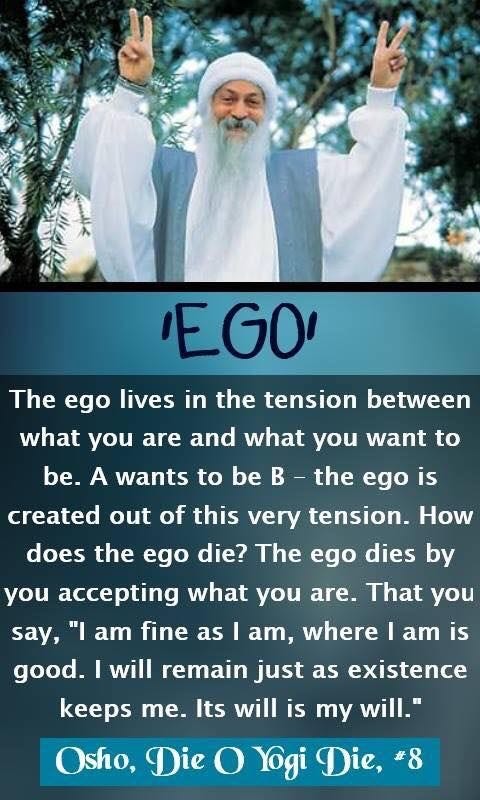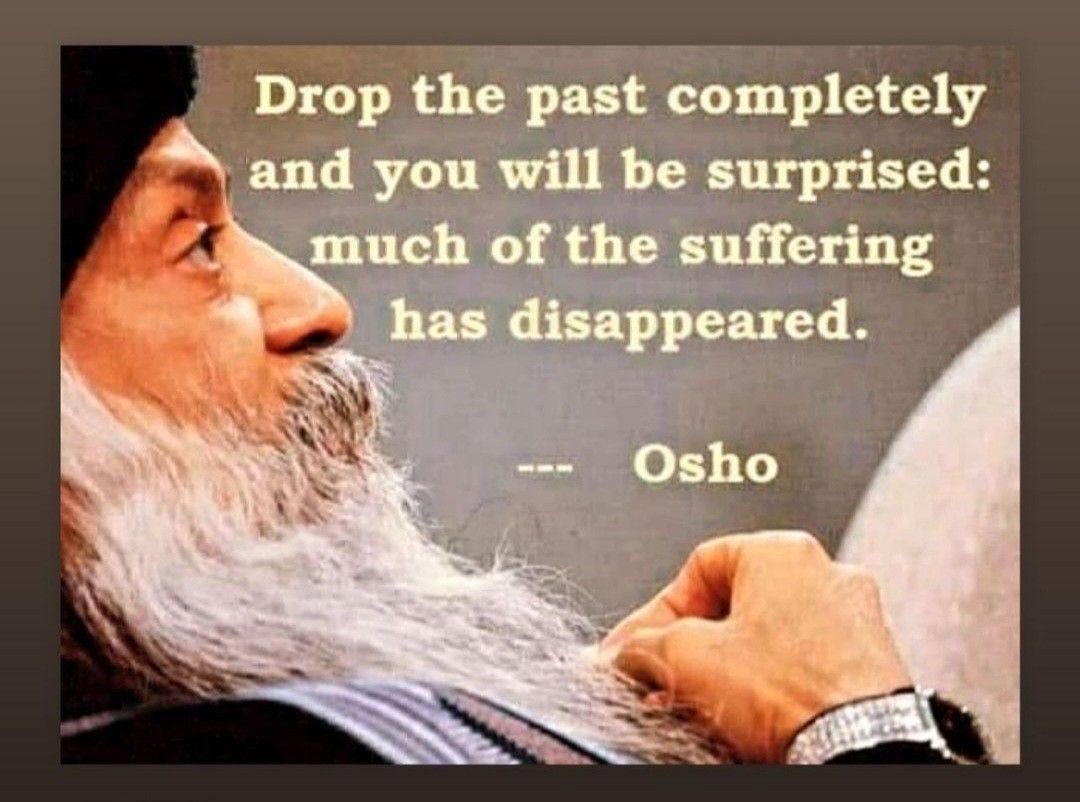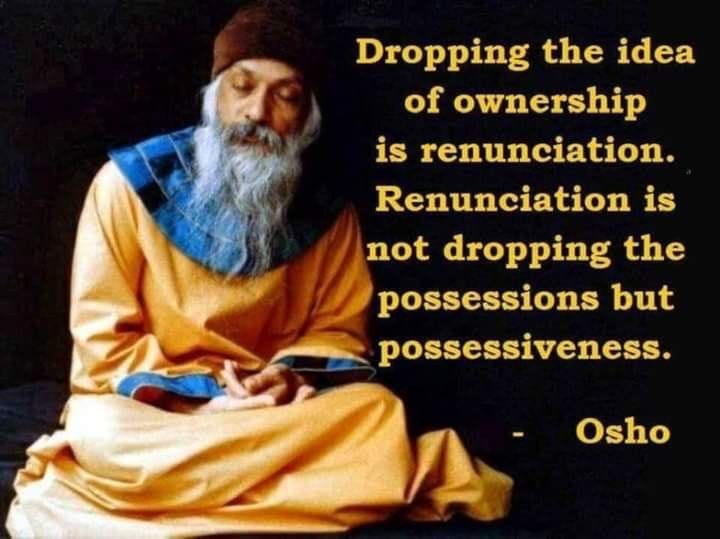Do we really know what is misery or suffering?
You are not just a body, you are beyond this, there is also a soul and it is seeing the suffering, misery, sorrow happening in this body.
August 13, 1973, 7:00 pm Osho answers questions from his disciples including those about his suffering after a discussion on the Tao Upanishad at Patkar Hall, Mumbai (then Bombay), which is compiled as Chapter 14 of Tao Upanishad Part Four (in Hindi) titled ‘#78 I Cure Blindness’. (This is English translation of it using google translate with minor editing to maintain his intent.)
Osho says that what I have said to explain the Tao will help contemporary people, but the answers to the questions asked of me will be more helpful to people born in the future because God is raising questions in their minds for them. I have tried to make it more clear in brackets from my experience.
First question:
Osho, we know suffering; Buddha knows happiness. Do we really know suffering? If we truly know sorrow then why don’t we move in the direction of happiness?
Osho-
Certainly, one who understands suffering begins to be free from suffering. We suffer suffering, but do not know it. To suffer is not to know. Our suffering is also unconscious, asleep, unconscious. And it is important to understand the basic symptom, the symptom of this unconsciousness. Even when we suffer suffering, we do not remember that we suffer in search of happiness. What we want is happiness, but what we get is sorrow. What we want is heaven, but what we get is hell. And one who wants happiness will surely suffer suffering. Sorrow is born from the desire for happiness.
If we understand that we are suffering, and also understand why we are suffering, and what suffering is, then we will give up the desire for happiness. As soon as we give up the desire for happiness, freedom from suffering begins. There is suffering because there is a demand for happiness. Therefore, the more the demand for happiness, the more suffering there will be.
It is a very surprising phenomenon that the poor and the destitute are not as unhappy as the rich and the wealthy. Because the poor and the destitute do not have much demand for happiness. They cannot even think of much happiness, cannot even dream of much happiness. Their demand for happiness is within their limits. But the one who has all the facilities, his demand for happiness becomes limitless. He has everything; he can buy happiness. So the demand also arises naturally. That is why the poor are not as unhappy as the rich.
The poor may be in pain, but they are not in sorrow. The rich are not in pain, but they are in great sorrow. Pain is material lack. There is a hungry man, he is in pain. There is a hungry man, he is in trouble.
There is a naked man, when it is cold, it is hot; he is in pain. There is a sick man, there is no arrangement for medicine; he is in pain. But there is a man with a full stomach; there are clothes, there are medicines, there are facilities, there is everything, and inside he finds that everything is useless; there is nothing of essence, nothing is being achieved. Everything is outside; There is emptiness inside. This man is in sorrow. Sorrow is a sign of prosperity. Therefore, if you want to be sad, it is necessary to be prosperous. And if you do not experience sorrow, then our desire for happiness does not go away.
Only through the intense experience of sorrow does one begin to realize why there is sorrow. We have asked for the opposite. If we do not get what we ask for, then sorrow is born. And the fun is that even if we get it, happiness is not born. The whole complexity and puzzle of life is that if we get what we want, then we do not get happiness; and if we do not get it, then we get sorrow. We want wealth; if we get it, then money comes in our hands, but happiness does not come in our hands. We want a palace, so we want it; we want a kingdom, we want an empire, so we want it; many people got it.
But Alexander has said that I am dying empty-handed; my hands are empty. To have such a big empire and yet have empty hands; what would be the meaning of this? We got the empire, but the dream of happiness that we had cherished has not been fulfilled. It is still empty. If you get what you want, you don’t get happiness; it only creates boredom. And if you don’t get it, it creates sorrow. The desire for happiness has two extremes. A person who wants to get something is bored. That is why rich people feel bored, are bored, are distressed. They cannot understand what is the meaning of life, what is the interest!
Those who don’t get anything, are troubled by the pain of not getting anything. It started to appear that sorrow is not an external event; pain is an external event. Remember, if someone else wants, he can give you pain, but he cannot give you suffering. You can only give suffering to yourself. That is a personal event. Pain depends on others. Even Buddha was given poison by someone — even if by mistake — but still he was given pain. His body was in pain; his death also happened because of that incident. But no one can give suffering to Buddha. Pain comes from outside; suffering is an internal point of view. That is why we can suffer from pain; and if we want, we cannot get suffering from pain. Because that is an internal interpretation.
Buddha does not take even sorrow as sorrow; We don’t take even pain as sorrow. The opposite also happens. We can take even happiness as sorrow. Because it depends on our interpretation.
I have heard that in a big city of America, the owner of a hotel was complaining to his friend that business is very bad and business is declining day by day; not many guests come to the hotel now. His friend said, but what are you saying?
I see a no vacancy sign on your hotel every day — that there is no vacancy.
He said, leave that sign aside. Four months ago I used to turn away at least a hundred customers every day, now I am turning away hardly fifteen to twenty. Business is declining every day.
Man has his own explanations. Business is the same, but fewer customers are returning, this also causes pain. There has not been the slightest change in business, but that man is unhappy. And there is no need to doubt his sorrow, his sorrow is real; he is suffering. (Nowadays, not getting likes on social media, getting followed by fewer people, content not going viral are also the pains we face due to our interpretation.)
Sorrow or suffering is our interpretation. Pain can be given from outside. That is why even Buddha cannot go beyond pain. As long as the body exists, pain can be given. But there is no way to give suffering. Because pain will remain outside. It will not be interpreted as suffering.
So remember two things. Do not say that we know suffering; we experience suffering. (By knowing, understanding, recognising suffering as suffering, one is liberated from it.) Buddha experiences bliss. One who recognizes suffering becomes ready to enjoy bliss. The one who has understood the entire mechanism of suffering starts to go beyond suffering.
And it has been asked that why do we not go in the direction of bliss?
From our side, we go, but do not reach. From our side, every person searches for bliss. It is difficult to find a person who does not search for bliss. It is another matter that his search may be misguided; he may not find bliss wherever he searches; The methods by which he searches may lead to misery. Everyone searches for happiness. There is no difference in this regard between the enlightened and the unenlightened, between the wise and the ignorant. The difference is in the method.
The enlightened search in such a way that they find it, and we search in such a way that we do not find it. There is a difference in the method, there is no difference in the search. There is no difference in the goal. We also want happiness. But if even after seeking it, suffering arises, then definitely some mistake is being made in the desire. (we try to find it through accumulation of wealth and power). It is important to understand this in two-three parts.
The first thing, which is very important: our happiness, or what we call bliss, is always in the future; it is in the coming tomorrow. Remember, the mistake has started. Existence is here and now, and you have started longing for tomorrow which is not there. You have wandered outside existence. Whatever can be found can be found here and now. Nothing can be found tomorrow; because tomorrow never comes. Tomorrow does not exist at all. This is the race of a foolish man. A foolish man keeps thinking about tomorrow because of his lust.
One of Buddha’s monks Sariputta asked him how to find bliss?
So Buddha said, give up the search, just be present here and now. There is no need to search. Bliss is here. You are running away, that is why you are not able to meet what is here. Bliss is not something that will be found in the future; it is present in the beat of our heart since our birth. Bliss is our nature. There is no need to search for it. It is because of searching that we miss it. Don’t search for it; hold on to it right now, in this very moment. Don’t postpone it to tomorrow.
An unhappy man is the one who searches for happiness tomorrow, and a blissful man is the one who doesn’t postpone it to tomorrow, but drowns in it right now. This drowning is called meditation, samadhi. So when you learn the art of drowning in this very moment, you get access to the source of bliss. This is one thing that you need to understand sorrow, misery.
The second thing to keep in mind is that people who search for happiness are always trying to get happiness from others. Like someone else will give it — wife will give, husband will give, money will give, society will give, son will give — someone will give, someone else will give. There is a mistake.
Bliss is within you; no one in the world can give it to you. There is no way to give it. So as long as we think that someone else will give happiness, we will get misery. The day we come to the point that no one can give happiness, till date in the entire history no one has ever given bliss to anyone. Bliss, happiness has to be found by oneself. It is the relationship of oneself with oneself. That is an inner journey, not an outer journey. Immerse yourself in the moment and be immersed in yourself.
And the third thing, whenever you face sorrow, do not identify yourself with it by drowning in it; do not become sad. Whenever you face sorrow, remain a witness and see it. Instead of experiencing it, know it. Instead of drowning in it, be a neutral witness, become a seer. The basic formula of sorrow is identity. Anger comes, clouds of sorrow start rising. You immediately become one with it. You forget that I am something that is different from anger. You are definitely different. Because when there was no anger, you were there. And after some time, when anger will not be there, you will still be there. So anger has come around you like a cloud. But there is no need for your sun to become one with that cloud. The sun can be kept away.
We have called this art of keeping away as witnessing. So whenever sorrow catches you, try to stand a little away and see. It will be difficult in the beginning, because for many births we have tried to see by becoming one with it. But if you try even a little, you will see a distance immediately. Because there is a distance. Identity is a lie; distance is the truth. There is a gap between you and your experiences. Whatever happens is happening outside of you. You may want to connect yourself to it. And if you have developed a habit of connecting, then breaking it may seem difficult. But in reality you are not connected and separate. Your nature is not to suffer from it, but to know.
To suffer is a mistake; to experience it is an illusion. To know it is the right way to discover truth. What is true will happen easily. But the old habit can take some time. So whenever you feel sorrow, misery, sit quietly, close your eyes and try to see the suffering from a distance, as if it is happening to someone else. (Because you are not just a body, but you have considered yourself to be just a body. So now you will also have to accept that you are not just a body, you are beyond this, there is also a soul and it is seeing the suffering, misery, sorrow happening in this body.)
Let this one statement go very deep inside you — as if it is happening to someone else. Someone has abused you and you start suffering from it as it has started to stir inside you. Sit down with your eyes closed and see as if it is happening to someone else; you are far away. Slowly this distance will start to clear, the haze will go away, and it will be clearly visible that suffering is happening and you are the one observing. The moment you become the observer, your connection with suffering is broken. To become an observer is to become detached from suffering.
If you keep these three things in mind, then enlightenment is not far away. To become an enlightened person is your right. If you are not, it is your pleasure. To become an enlightened person is easy for everyone. If you are not, it is the result of your efforts. You are stopping yourself in every way. So from the outside it appears that you are searching for happiness, but whatever you are doing is killing happiness. If you search for happiness according to these three sutras, then you will soon find that the ray has started to descend with the help of which you can be free, and with the help of which you can reach Sachchidananda, Truth, Allah.
-Osho, Tao Upanishad(Hindi) #78 I Cure Blindness, copyrights Osho International Foundation.
My suggestions from my inner journey and what helped me in it:-
Awareness Meditation is the way worked for me and I tried it first during brushing my teeth in the morning after trying 8–10 meditations over period of 15 years! So there is no need to reinvent the circle for you. May be you too find it suitable otherwise with Dynamic meditation and/or Kundalini in the evening it is suitable for most of the people. There are 110 other meditation techniques discovered by Indian Mystic Gorakhnath about 500years before and further modified by Osho for contemporary people that one can experiment and the suitable one could be practiced in routine life.
Hi ….. I write my comments from my personal experiences of my inner journey. This post may include teachings of Mystics around the world which from my personal experience I found worth following even today. For more have a look at my linktree website for getting regular updates through social media lor subscribe to YouTube channel or listen to the podcasts etc.
For references of content on Osho, Copyright © OSHO International Foundation, An MP3 audio file of this discourse can be downloaded from Osho(dot)com or you can listen or watch his discourses @ OSHO International channel of YouTube where you can get subtitles in language of your choice or you can read the entire book online at the Osho Library. Many of Osho’s books are available online at Amazon.
My suggestions:-
Osho International Online (OIO) provides facility to learn these from your home, through Osho Meditation Day @€20.00 per person. You can learn Dynamic meditations from disciples of Osho. OIO rotate times through three timezones NY,Berlin and Mumbai.
Originally published at https://philosia.in on June 26, 2025.






